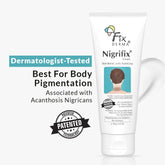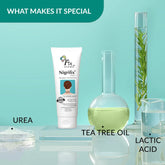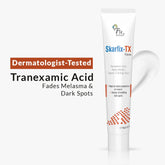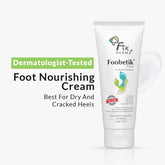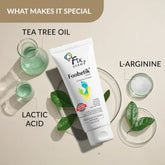How Often Should You Shampoo & How to Pick Your Shampoo?

Table of Content
-
How Frequently Should You Wash Your Hair for Optimal Health?
- Factors to consider or look forward
-
How to Know Which Shampoo Is Best
- Shampoo for Oily Hair
- Shampoo for Dry Hair
- Shampoo for Curly Hair
- Shampoo For Fine or Thinning Hair
- How To Wash Hair? The Right Tips for Healthy Hair
- Signs You’re Over-Shampooing Your Hair
-
Sulphate Free Shampoo: Benefits and Why To Use?
- What Are Sulphates?
- Benefits of Sulphate-Free Shampoos
- Best Shampoo Ingredients To Look For Healthy & Shiny Hair
- How To Use Shampoo And Conditioner for Healthy Hair
- Conclusion: How Often Should I Wash My Hair?
- Frequently Asked Questions (FAQ’s)
Shampooing is an essential part of your hair care routine. It not only helps cleanse the scalp and hair but also helps you maintain a healthy and vibrant appearance. However, many people have no correct hair care routine and search the internet for “how often should I wash my hair?” While shampooing frequency and the selection of the product can vary depending on the hair type and scalp health, it becomes really important to know what is best for your hair?
In this blog, we will not only discuss how often should you wash your hair, but also help you pick the best shampoo for you, and some hair care tips that will keep your hair healthy and shiny.

How Frequently Should You Wash Your Hair for Optimal Health?
One of the most frequently asked questions about hair care is how often one should shampoo their hair. The answer to this question varies as per individual preferences and certain factors like your hair type, scalp condition, and most importantly your lifestyle. Normally, washing your hair 2 to 3 times a week is considered ideal.
While shampooing too much can strip your hair’s natural oil by making it dry and brittle, not shampooing enough can accumulate more oil, dirt, and sweat can cause scalp issues like dandruff or clogged hair follicles. Therefore, you must understand how shampoo is affecting your scalp and hair.
Factors to Consider
Some of the factors to consider or look forward to when determining how frequently one should shampoo your hair:
Hair Type
-
Oily Hair: If you have oily hair then you need to wash your hair every other day. A good shampoo for oily hair will help control excess sebum protection without stripping your hair.
-
Dry Hair: For dry hair people, doing shampoo 1 to 2 times a week is enough. Opting for a moisturizing shampoo for dry hair can simply help to lock in the hydration and also help to avoid making your hair more brittle.
-
Normal Hair: If you have a balanced scalp and hair type, washing your hair 2 to 3 times a week would be sufficient.
Scalp Health: If you have a dry and sensitive scalp then you must go for a mild and sulphate free shampoo to avoid the irritation.
Lifestyle and Activities: If you perform workouts frequently or are exposed to more pollutants and chemicals then you may need a shampoo that helps to clean your scalp.

How to Know Which Shampoo Is Best
Identifying which shampoo is best for you is both important and challenging. Different hair types require different shampoo. The wrong shampoo can cause issues ranging from dryness and frizz to oiliness and dandruff. Some of the tips on how to choose the right shampoo based on your hair’s unique needs:
Shampoo for Oily Hair
Oily hair usually produces more sebum than dry hair which can make your hair look greasy and flat. If you have oily hair then look for shampoos that are specifically formulated to balance the oil production without making the scalp over-drying. Some of the key ingredients to include or look for are as follows:
-
Salicylic Acid: It contains some exfoliating properties as salicylic acid removes excess oil and prevents buildup from the scalp.
-
Tea Tree Oil: This natural ingredient comprises antibacterial properties that help to fight oil and prevent dandruff.
-
Charcoal or Clay: This ingredient absorbs all the excess oils and toxins and purifies the scalp.
Shampoo for Dry Hair : Dry hair lacks moisture, making it look frizzy and more brittle and dull. The best shampoo for dry hair helps to restore hydration and protect the hair cuticle. So when choosing a shampoo for dry hair then consider or look for the following ingredients:
-
Argan Oil: This nourishing oil moisturizes and softens the hair, making it shine and smooth.
-
Shea Butter: Shea butter is rich in fatty acids and it helps to restore moisture and improve the elasticity in dry hair.
-
Coconut Oil: It has excellent deep conditioning properties as it locks the moisture and prevents hair from becoming too dry.
Shampoo for Curly Hair : Curly hair is usually dry compared to other hair types, and it often requires extra care to maintain its natural bounce and shine. Consider shampoos that offer moisture and curls without any compromise. Look for ingredients that contain glycerin and jojoba oil, which are excellent for keeping curls hydrated and bouncy.
Shampoo For Fine or Thinning Hair
Fine or thinning hair requires a shampoo that cleanses the hair without weighing it down. Look for products that increase the volume and add texture to your hair. Ingredients like panthenol (Vitamin B5) can strengthen fine hair and prevent breakage.
How To Wash Hair? The Right Tips for Healthy Hair
Your shampooing routine plays a very important role in the overall health of your hair. So follow these hair-washing tips to keep your hair best.
-
Pre-Shampoo Treatments: Before shampooing consider using a pre-shampoo treatment such as a hair oil or a good conditioning mask which helps to nourish the hair and protect it from drying out.
-
Rinse with Lukewarm Water: Hot water can strip the hair from its natural oils so it is very important to use lukewarm water when shampooing. Finish with cold water as it protects the cuticle and adds shine to the hair.
-
Massage the Scalp: Gently massage the scalp with your fingertips while shampooing as it circulates blood circulation promotes healthy hair growth and removes all the buildup from the scalp.
-
Don’t Over-Condition: Performing conditioning is crucial but over-conditioning can weigh down your hair usually if it is oily or thin. Apply conditioner only to the ends and leave it for a few minutes before rinsing.
Signs You’re Over-Shampooing Your Hair
Shampooing too often or frequently can lead to several issues. For example, if you notice any of the following signs then you need to focus on your shampooing routine:
-
Dryness and Brittleness: Over-shampooing can strip your hair's natural oils making it dry, frizzy, and more prone to breakage.
-
Scalp Irritation: Too much shampooing can irritate the scalp, leading to itching, redness, etc.
-
Dullness and Lack of Shine: When hair is over-washed it starts losing its natural shine and looks dull.
Sulphate Free Shampoo: Benefits and Why To Use?
Sulphate free shampoos have gained a lot of popularity these days and that too for a good reason. Traditional shampoos often contain sulfates which comprise some cleansing agents like Sodium Lauryl Sulphate and Sodium Laureth Sulphate. These ingredients create some luxurious lather that is often associated with cleanliness and sometimes it can be harsh on the scalp and hair.

Sulfate Free Shampoo Benefits For Your Hair
-
Gentler on Hair and Scalp: Sulfate-free shampoos clean your hair without removing the natural oils, keep your scalp hydrated, and give shine to your hair.
-
Preserves Natural Moisture: Sulfate-free formulas prevent excessive drying and make your hair soft and manageable. This is quite beneficial during winter or in low-humidity environments.
-
Reduce Frizz: Curly hair becomes drier in comparison to straight hair because natural oil from the scalp struggles to reach to ends. Sulfate-free shampoos help to retain moisture and make the curl more defined and less prone to breakage.
-
Scalp Health: Sulphates can sometimes lead to irritation or itching mainly to someone who has sensitive skin. A sulfate-free option can reduce the risk of discomfort and keep your scalp healthy and balanced.

Best Shampoo Ingredients To Look For Healthy & Shiny Hair
Selecting or choosing the right shampoo makes a very big difference in your overall hair’s health and appearance. There are immense options available in the market, so understanding and having a good knowledge of the product is quite important. Some of the ingredients to consider for looking for better results are as follows:

Moisturizing Ingredients: For dry or damaged hair, consider ingredients that help to lock the moisture and give adequate hydration.
-
Glycerin: A humectant attracts moisture from the environment, seals it in your hair and makes it hydrated and soft.
-
Aloe Vera: It is usually known for its soothing and hydrating properties as it moisturizes the scalp and the hair by reducing or minimizing dryness and irritation.
-
Coconut Oil: It deeply penetrates hair strands, repairs the damage and offers deep hydration.
-
Shea Butter: It is usually rich in vitamins and fatty acids and nourishes the hair well making it smooth and shiny.

Strengthening Ingredients: For someone who has weak or brittle hair or is more prone to breakage then consider the following ingredients as they help to fight and protect the hair strands.
-
Keratin: It is a protein that strengthens the hair by filling the damaged areas of the cuticles and also helps in reducing breakage and frizz.
-
Biotin (Vitamin B7): It helps to get stronger hair by improving the keratin level and boosting hair growth.
-
Collagen: Improves the elasticity and strength of the hair
-
Amino Acids: Helps to rebuild and repair the damaged hair

Ingredients for Scalp Health: A healthy scalp is the foundation of healthy hair Some of the ingredients that address scalp issues such as dandruff, itchiness, and dryness are as follows:
-
Tea Tree Oil: It is known for its antifungal and antibacterial properties and it helps to combat issues like dandruff and itchy scalp.
-
Salicylic Acid: Exfoliates the scalp by simply removing the buildup flakes that are caused by the dandruff.
-
Peppermint Oil:It helps to promote blood circulation, promotes hair growth and offers a refreshing sensation.
-
Niacinamide: It improves scalp hydration, strengthens the scalp barrier and also minimizes the information.

Ingredients for Hair Growth
If you aim to boost your hair growth and deal with thinning hair, consider these ingredients to support hair growth.
-
Caffeine: It improves blood circulation to the scalp and encourages the growth of hair follicles
-
Castor Oil: Contains ricinoleic acid which helps to nourish the scalp and helps for hair growth.
-
Rosemary Oil: It stimulates hair follicles and also helps in hair growth and avoids premature greying.
Best Sulfate And Paraben Free Shampoo: Bioteez-S - Anti Dandruff Shampoo is one of the best sulfate and paraben free shampoo on the market. Packed with 1% Salicylic Acid, 2% Zinc Pyrithione, and 2% Chitosan it effectively reduces dandruff, itching in the scalp, reduces desquamation, regulates sebum production, and cleans the scalp.

How To Use Shampoo And Conditioner for Healthy Hair
An ideal hair-washing routine helps to balance the process of cleansing along with nourishing treatments. Let’s look at some step-by-step procedure on how to use shampoo and conditioner to achieve a healthy hair:
-
Pre-Shampoo: Go for a deep conditioning mask or oil treatment once a week to retain the moisture.
-
Shampoo: Pick the right shampoo for your hair type and wash your hair 2 to 3 times a week depending on your needs.
Recommended Product: Fixderma Kairfoll Anti Dandruff Shampoo
Fixderma Kairfoll Anti Dandruff Shampoo is the ultimate solution designed for oily and sensitive scalps, prone to dandruff, itchiness, and flakiness. It features advanced HDS (Hair Delivery System) Technology that helps to deliver the product specifically to the hair follicles, promoting hair vitality and calming the sensitive scalp.
Conditioner: Use a good conditioner that suits your hair type and pay more attention to the ends to prevent excess dryness.
Recommended Product: Kairfoll Anti Hair Loss Conditioner
Conditioning is an important part of the hair care regimen. Most of the conditioners help in retaining the moisture without making any nutritional value in addition to the hair strands. The post washing nourishment plays an important role in the health of the hair follicles.
Kairfoll Anti Hair Loss Conditioner works on the dual module by conditioning and nourishing the hair strands. Hydrolyzed quinoa increases the hair's ability to retain moisture and helps transform dull, lifeless, brittle hair into a soft, supple, shiny.
Finishing Touches: Use a leave-in conditioner or some styling cream to protect your hair from excess heat and add some shine and bounce to it.
Conclusion: How Often Should I Wash My Hair?
Shampooing is more than just a simple cleaning ritual as it’s a vital part of your hair care routine. The key to healthy, beautiful hair is finding the right balance in your shampooing habits and selecting the best shampoo for your hair type. By understanding how often you should shampoo and how to choose the right products, you can maintain a healthy scalp and vibrant hair.
Always ensure to pay attention to your hair’s specific needs, whether it’s oily, dry, or curly, and adjust your routine accordingly. Additionally, incorporating sulfate-free shampoos and nourishing ingredients can make a world of difference in keeping your hair healthy and shiny.
Frequently Asked Questions (FAQ’s)
-
What’s best for color-treated or chemically treated hair?
Shampoo 2-3 times a week with colour-safe or sulfate free shampoos to protect your colour and maintain moisture. Try the Kairfoll Bond Repair Shampoo to help strengthen chemically treated hair.
-
Can I use the same shampoo year-round?
Your hair’s needs change with the seasons, lifestyle, and environmental factors. For example, during winter you should opt for some hydrating or anti-frizz shampoos whereas during summer you need to look for shampoos that can deal with sweat or oil.
-
How does Fixderma Kairfoll Bond Repair Conditioner work?
The Bond Repair conditioner works by targeting and repairing broken disulfide bonds in the hair caused by chemical treatments, heat styling, or environmental stress. Its nutrient-rich formula hydrates and nourishes the hair while sealing the cuticle to reduce frizz and improve shine.
-
How often should I use Fixderma Kairfoll Bond Repair Conditioner?
Use the conditioner every time you wash your hair, preferably after using a gentle shampoo.
